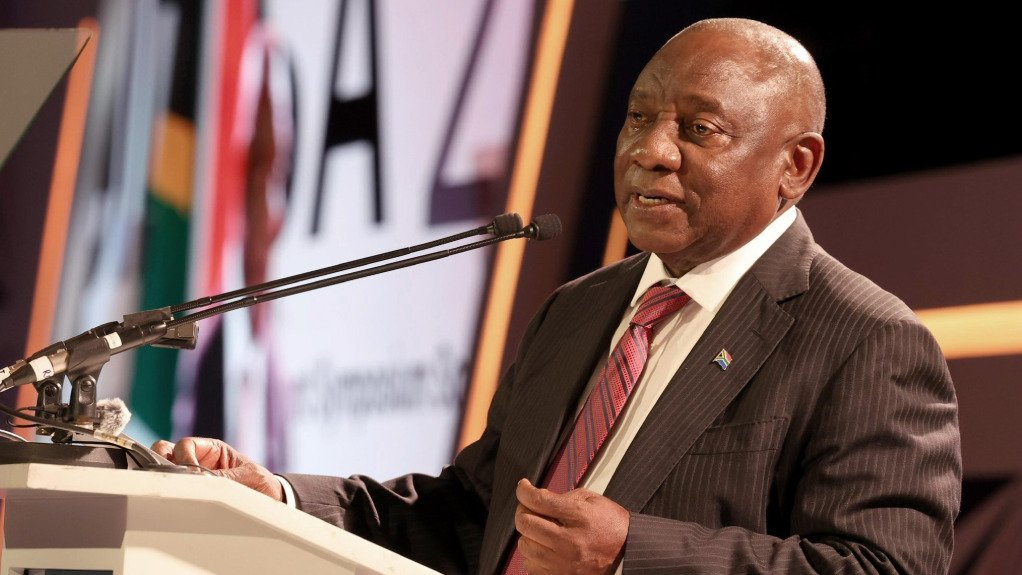As government prepares to spend more than R1-trillion on infrastructure over the next three years, President Cyril Ramaphosa wants the private sector to quadruple that to R4-trillion.
“I want R4-trillion, and the other R3-trillion must come from you as the private sector.
“Armed with that, we then become a locomotive – unstoppable – because out of that R3-trillion you will invest, you will get a return, you will make money, and we will turn South Africa around.”
Speaking at the Sustainable Infrastructure Development Symposium South Africa (SIDSSA) held in Cape Town this week, Ramaphosa emphasised that government did not have the financial resources to answer all of the country’s infrastructure needs, and that it required international and domestic capital to fund “the beckoning infrastructure boom”.
He noted that government had been able to come up “with much clearer, forward-looking funding methods” – especially through an agency such as Infrastructure South Africa (ISA) – to provide the credibility that was necessary for stakeholders to invest, so that South Africa could “mobilise the trillions of rands in long-term savings held by domestic and offshore institutions”.
ISA’s main goal is to select strategic infrastructure projects and to prepare and package these projects so that they are viable and bankable undertakings – attractive investments, in other words.
All ISA-selected projects must be valued at R1-billion and above, and must be able to leverage private-sector involvement, blended finance, or be commercially viable on their own.
One of ISA’s products is the Construction Book.
Released last month, the second edition of the Construction Book lists around 250 construction projects with an estimated value of more than R238-billion.
“[This] is a credible and detailed list of fully-funded infrastructure projects,” said Rampahosa.
“This year it includes social infrastructure projects that are overseen by National Treasury.
“By focusing on projects that are procurement-ready and financially secured, it also reduces uncertainty for contractors, consultants, manufacturers and material suppliers.
“We are showing that we have moved from great ideas on paper, to executable plans – to implementation,” noted Ramaphosa.
“We want to move fast,” he added. “We are implementing the reforms that are needed to make it easier for more construction to take place by reducing regulatory duplication and providing investors with long-term certainty.
“Some of the reforms we are focusing on will make it easier for public-private partnerships (PPPs) under the value of R2-billion to gain approval.
“This will significantly reduce the procedural complexity of implementing PPPs.”
Ramaphosa also openly acknowledged the errors of the past in his opening address.
“For many years, major projects were announced without technical readiness, cost realism or stakeholder alignment.
“Some of us in government will own up to that.
“We have in the past not matched the great ambition we had with the reality of the availability of technical skills that can make the projects bankable.
“Beyond that, we were not matching the availability of financing to fund those projects. All of these things were completely disconnected.
“As politicians we would stand up and say we are going to build this and that and that and everyone would clap hands, but many years later we would find that not much had happened, because we were not connecting the dots properly,” said Ramaphosa.
“We had many sod-turning ceremonies at the start of projects, but very few ribbon cutting ceremonies on completion.
“ISA was established to break this pattern.”
EMAIL THIS ARTICLE SAVE THIS ARTICLE ARTICLE ENQUIRY FEEDBACK
To subscribe email subscriptions@creamermedia.co.za or click here
To advertise email advertising@creamermedia.co.za or click here











